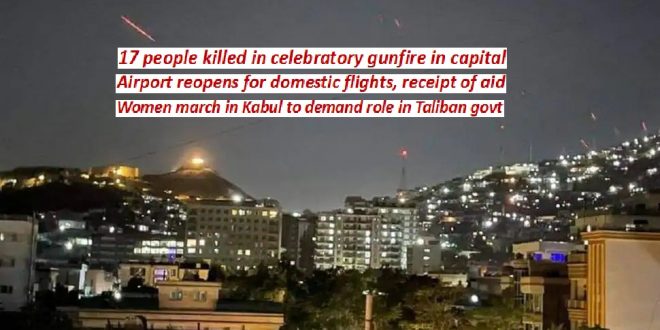05-09-2021
By SJA Jafri + Bureau Report + Agencies
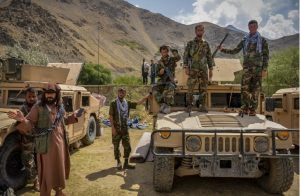 KABUL/ ISLAMABAD/ DUBAI/ WASHINGTON: Fighting was reported on Saturday between the Taliban and resistance forces in Afghanistan’s Panjshir Valley, the last region of the country holding out against the armed group.
KABUL/ ISLAMABAD/ DUBAI/ WASHINGTON: Fighting was reported on Saturday between the Taliban and resistance forces in Afghanistan’s Panjshir Valley, the last region of the country holding out against the armed group.
A spokesman for the National Resistance Front (NRF) of Afghanistan, which groups opposition forces loyal to local leader Ahmad Massoud, said Taliban forces reached the Darband heights on the border between Kapisa province and Panjshir but were pushed back.
“The defence of the stronghold of Afghanistan is unbreakable,” Fahim Dashty said in a tweet.
A Taliban source said fighting was continuing in Panjshir but the advance had been slowed by landmines placed on the road to the capital Bazarak and the provincial governor’s compound. “Demining and offensives are both going on at the same time,” the source said.
Facing the challenge of morphing from rebels to rulers, the Taliban appears determined to snuff out the Panjshir resistance before announcing who will lead the country in the aftermath of Monday’s US troop withdrawal, which was supposed to end two decades of war but Panjshir, which held out for nearly a decade against the Soviet Union’s occupation and also the Taliban’s first rule from 1996 to 2001, is stubbornly holding out.
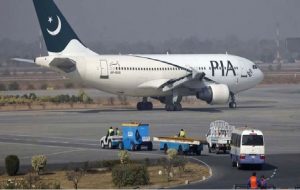 Fighters from the NRF made up of anti-Taliban militia and former Afghan security forces are understood to have stockpiled a significant armoury in the valley, 80km (50 miles) north of Kabul and guarded by a narrow gorge.
Fighters from the NRF made up of anti-Taliban militia and former Afghan security forces are understood to have stockpiled a significant armoury in the valley, 80km (50 miles) north of Kabul and guarded by a narrow gorge.
‘Under invasion’
Celebratory gunfire rang out in the capital Kabul overnight as rumours spread that the valley had fallen. The Emergency Hospital in Kabul said two people were killed and 20 wounded by the salvos, as the Taliban tweeted a stern admonishment warning its fighters to stop.
“Avoid firing in the air and thank God instead,” said chief spokesman Zabihullah Mujahid, tipped to become the new regime’s information minister.
“The weapons and bullets given to you are public property. No one has the right to waste them. The bullets can also harm civilians, don’t shoot in vain.”
In Panjshir, former Vice-President Amrullah Saleh, holed out alongside Ahmad Massoud – the son of anti-Taliban commander Ahmad Shah Massoud – admitted the perilous position of the NRF.
“The situation is difficult, we have been under invasion,” Saleh said in a video message. “The resistance is continuing and will continue.”
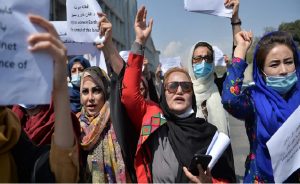 Taliban and resistance tweets suggested the key district of Paryan had changed hands several times in the last few days, but that also could not be independently verified.
Taliban and resistance tweets suggested the key district of Paryan had changed hands several times in the last few days, but that also could not be independently verified.
United States General Mark Milley, chairman of the Joint Chiefs of Staff, underscored the tenuous situation in Panjshir.
“My military estimate is, is that the conditions are likely to develop of a civil war. I don’t know if the Taliban is going to be able to consolidate power and establish governance,” Milley told Fox News on Saturday from Ramstein Air Base in Germany.
Milley said if they cannot that will “in turn lead to a reconstitution of Al Qaeda or a growth of ISIS or other myriad of terrorist groups” over the next three years.
Aid talks
Away from the valley, the international community was coming to terms with having to deal with the new Taliban regime with a flurry of diplomacy.
US Secretary of State Antony Blinken is due on Sunday in Qatar, a key player in the Afghan situation and the location of the Taliban’s political office.
UN Secretary-General Antonio Guterres is also set to convene a high-level meeting on Afghanistan in Geneva on September 13 to focus on humanitarian assistance for the country.
 Afghanistan’s new rulers have pledged to be more accommodating than during their first stint in power, which also came after years of conflict, first the Soviet invasion of 1979, and then a bloody civil war.
Afghanistan’s new rulers have pledged to be more accommodating than during their first stint in power, which also came after years of conflict, first the Soviet invasion of 1979, and then a bloody civil war.
They have promised a more “inclusive” government that represents Afghanistan’s complex ethnic makeup though women are unlikely to be included at the top levels.
Meanwhile, there were some signs of normality creeping back in the Afghan capital.
The first commercial flight took off on Saturday from Kabul to Mazar-i-Sharif after the airport’s runway was repaired. Qatar’s ambassador to Afghanistan also said a technical team was able to reopen Kabul airport to receive aid.
The UN has already restarted humanitarian flights to parts of Afghanistan, while the country’s flag carrier Ariana Afghan Airlines resumed domestic flights on Friday and the United Arab Emirates sent a plane carrying “urgent medical and food aid”.
The airport has been closed since the US completed operations on August 30 to evacuate diplomats, foreigners and Afghans deemed at risk from the Taliban. However, tens of thousands of people could not be flown out.
Taliban’s Mujahid also said one of the main foreign exchange dealers in the capital had reopened.
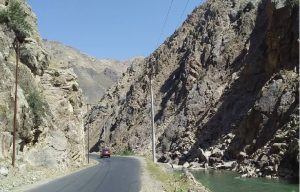 Impoverished Afghanistan’s economy has been thrown into disarray by the takeover by the Taliban. Many banks are closed and cash is in short supply.
Impoverished Afghanistan’s economy has been thrown into disarray by the takeover by the Taliban. Many banks are closed and cash is in short supply.
Earlier, almost 17 people were killed in Kabul due to celebratory gunfire, news agencies said on Saturday, after Taliban sources said their fighters had seized control of Panjshir.
However, leaders of opposition to the Taliban have denied that the province has fallen.
The Shamshad News Agency said “aerial shooting” in Kabul on Friday killed 17 people and wounded 41. Tolo News agency gave a similar toll.
At least 14 people were injured in celebratory firing in Nangarhar province east of the capital, said Gulzada Sangar, spokesman for an area hospital in the provincial capital of Jalalabad.
According to AFP, the Emergency Hospital in Kabul said two people were killed and 20 wounded by the salvos, as the Taliban tweeted a stern admonishment warning its fighters to stop.
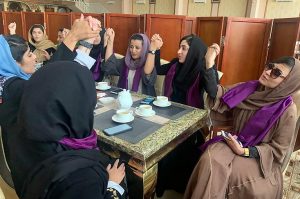 “Avoid firing in the air and thank God instead,” said chief spokesman Zabihullah Mujahid, tipped to become the new regime’s information minister.
“Avoid firing in the air and thank God instead,” said chief spokesman Zabihullah Mujahid, tipped to become the new regime’s information minister.
“The weapons and bullets given to you are public property. No one has the right to waste them. The bullets can also harm civilians, don´t shoot in vain.”
In Panjshir, former vice-president Amrullah Saleh, holed out alongside Ahmad Massoud, the son of legendary anti-Taliban commander Ahmad Shah Massoud admitted the perilous position of the NRF.
“The situation is difficult, we have been under invasion,” Saleh said in a video message.
Usually known for his sharp Western suits, Saleh was filmed wearing a traditional shalwar kameez tunic and a flat woollen pakol cap favoured by Panjshiris.
“The resistance is continuing and will continue,” he added.
Taliban and resistance tweets suggested the key district of Paryan had changed hands several times in the last few days, but that also could not be independently verified.
Meanwhile, a technical team has managed to reopen Kabul airport to receive aid, revealed Qatar’s ambassador to Afghanistan on Saturday.
 According to media news channel, domestic flights have also restarted.
According to media news channel, domestic flights have also restarted.
The airport’s runway has been repaired in cooperation with authorities in Afghanistan, the ambassador said, according to media. The channel said two domestic flights were operated from Kabul to the cities of Mazar-i-Sharif and Kandahar.
Kabul airport had been closed since the end of the massive US-led airlift of its citizens, other Western nationals and Afghans who helped Western countries. The end of that operation marked the withdrawal of the last US forces from Afghanistan after 20 years of war.
The evacuation of tens of thousands of people came amid the rapid takeover of Afghanistan by the Taliban, the West’s adversary in the two-decade war that followed the September 11, 2001, attacks on the United States.
Thousands of people wanting to leave Afghanistan, fearful of life under Taliban rule, were left behind when the evacuation operation ended at the end of August. The Taliban has promised safe passage for those wanting to leave.
Qatar’s Foreign Minister Sheikh Mohammed bin Abdulrahman Al-Thani, speaking at a joint news conference with Britain’s Foreign Secretary Dominic Raab in Doha on Thursday, said the 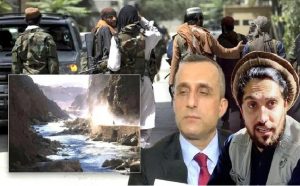 Gulf state was talking to the Taliban and working with Turkey for potential technical support to restart operations in Kabul airport.
Gulf state was talking to the Taliban and working with Turkey for potential technical support to restart operations in Kabul airport.
Dozens of women took to the streets of the capital on Saturday to demand their right to work, a role in any future government, and a seat at the table in discussions with the Taliban.
The protest began with 50 women marching towards the presidential palace.
However, Razia Barakzai, 26, said the women were stopped near the entrance to the finance ministry, where the Taliban “surrounded” them and kept them from continuing on their march towards the palace entrance.
Barakzai said the Taliban had employed both pepper spray and tear gas to try and disburse the crowd, she told media.
Saturday’s demonstration marks at least the fourth time women in Kabul and the western city of Herat have gathered to demand their rights in a future Taliban-led government. Barakzai said the Taliban which tried to encircle the protesters were wearing red banners and carrying guns.
 “These weren’t ordinary Taliban forces,” she said.
“These weren’t ordinary Taliban forces,” she said.
The crowd was surrounded on all four sides by the Taliban, who told them, according to Barakzai, “Go home, each of you one by one.” However, getting out proved to be just as difficult, since the Taliban continued to surround them.
“It was strange, they didn’t want us to stay, but they also wouldn’t let us leave.”
Barakzai also said one of the women was struck by the Taliban. Social media images showed a young woman bleeding from the head, where she claimed the Taliban had struck her.
Al Jazeera could not independently verify exactly how she was injured.
Decision-making roles
Barakzai, who previously worked for a government office, said the latest action was in response to a recent statement by senior Taliban leader Sher Mohammad Abbas Stanikzai, who in an interview said there “may not” be a place for women in the higher echelons of a future Taliban-led government.
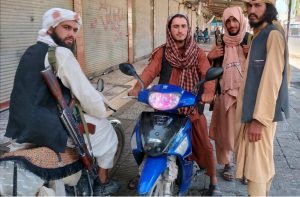 “How are we supposed to have the rights they promised us if we’re not in decision-making roles of the government or involved in talks with the Taliban,” said Barakzai.
“How are we supposed to have the rights they promised us if we’re not in decision-making roles of the government or involved in talks with the Taliban,” said Barakzai.
At a 17 August news conference, the Taliban said the group “is committed to the rights of women within the framework of Sharia [Islamic law]. Our sisters, our men have the same rights; they will be able to benefit from their rights. They can have activities in different sectors and different areas on the basis of our rules and regulations: educational, health and other areas. They are going to be working with us, shoulder to shoulder with us.”
However, Barakzai said women have yet to see any proof of that commitment to their participation or an explanation of what, if any, limits the Taliban will place on women’s role in the workplace and society as a whole. Additionally, Barakzai said when she and her comrades tried to meet the Taliban to address the issues of women’s rights and participation, they were turned away, she said.
Recent weeks have seen the Taliban send mixed signals about the place of women in Afghan society. In late August, the group’s spokesman, Zabihullah Mujahid, said women who work with the government should stay at home until they can ensure their safety on the streets and in offices.
 “We are worried our forces who are new and have not been yet trained very well may mistreat women … We don’t want our forces, God forbid, to harm or harass women,” Mujahid said at a 24 August press briefing.
“We are worried our forces who are new and have not been yet trained very well may mistreat women … We don’t want our forces, God forbid, to harm or harass women,” Mujahid said at a 24 August press briefing.
He went on to say women should stay at home and would be paid their salaries until such a time that it would be deemed safe for them to return to work.
This statement has been compared with a similar one Stanekzai made in 1996, when the Taliban first came to power.
Stanekzai, who was then the Taliban’s deputy foreign minister, said the Taliban leadership at the time, “have just told them [women] that for the time being they should not come to [the] office and school … Until the time we can come out with some sort of solution or we can provide them with separate places.”
That time never came. During their initial rule, the Taliban banned women, except for doctors, from working and did not allow girls to attend school.
 Pressmediaofindia
Pressmediaofindia
